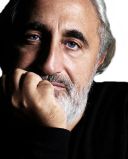Narcissism
The Narcissism and Grandiosity of Celebrities
What do Jenny McCarthy, Oprah, and Madonna have in common?
Posted June 15, 2009 Reviewed by Jessica Schrader
I have always been fascinated by the narcissism and grandiosity displayed by celebrities. Jenny McCarthy is bewildered that the National Institutes of Health is not paying attention to her "proof" that autism is caused by the MMR vaccine. Apparently, it is due to a large conspiracy in part driven by the evil pharmaceutical firms (no doubt, Dr. Evil is the CEO of the conspiratorial consortium). Madonna has claimed that she has used "Kabbalah fluid" to neutralize radiation at a Ukrainian lake. Tom Cruise castigated psychiatry for being pure quackery as he had "studied its history." Suzanne Somers hails her hormone therapy replacement program as an elixir of youth. Deepak Chopra explains to us the causes of disease using a wide range of semi-random new age quackery (see his interaction with the famed evolutionist Richard Dawkins here). The problem has gotten so out of hand that there is now an organization, Sense About Science, that seeks to combat such celebrity-driven idiocy. Recently, Salon.com did the "unthinkable" by publishing an article on the contribution of Oprah to this lunacy. How dare anyone question Oprah's omniscience and omnipotence?
My point in today's post is not to provide rebuttals to the drivel that such celebrities espouse. Rather, I'd like to speculate about possible psychological reasons that drive celebrities to engage in such nonsense.
1. Celebrities are a self-selected group of narcissists. Whereas it is certainly true that some individuals decide to pursue acting or singing careers for the pure love of the artistic forms in question, the great majority of celebrity wannabes are largely driven by the outcomes (e.g., fame, money, adulation). A recent study by S. Mark Young and Drew Pinsky (yes, this is Dr. Pinsky, host of the Celebrity Rehab with Dr. Drew) supports the contention that celebrities are narcissists.
2. The extraordinary attention that is lavished on celebrities (not to mention the outlandish sums of money) makes it easy to succumb to one's hype. People line up for hours to get a glimpse of Tom Cruise coming out of his limousine, and will scream with a visceral religious fervor at his mere sight. Take a narcissist, and feed his or her ego in such a manner twenty-four hours a day, and it is not difficult to guess that Tom Cruise starts to actually believe that he is a superhero (rather than playing one in the movies).
3. This next point is somewhat speculative so I hope that you'll grant me some leeway. You may have heard about survival guilt, namely the intense feelings of remorse that survivors of a plane crash might experience. A survivor might think: Why did I cheat death when so many others die? What is so special about me that my life was spared? I propose a similar mechanism to explain celebrities' "interventions" in making a better world. I believe that they suffer from a form of existential guilt. They know in the deep recesses of their minds that they are not deserving of the accolades and privileged lives that they lead. One of the ways by which they can assuage this persistent guilt is to demonstrate to the world that they are much more than a "mere celebrity." Hence, they "cure" mental illness; they "eradicate" autism; they "neutralize" radiation! Some of you might have noticed a possible contradiction here: If celebrities are narcissists why would they experience existential guilt? I think that such celebrities are perhaps slightly less narcissistic and hence maintain some elements of self-insight. Think Sean Penn (tortured artist) versus Paris Hilton (oblivious narcissist).
4. Postmodernism, the most virulent of anti-science dogma, proposes that all viewpoints are welcome and none is privileged. This creates a democratization of opinions. It is apparently "arrogant" to think that psychiatrists, physicists, and epidemiologists might know more about their areas of expertise than say Oprah or Jenny McCarthy. Most celebrities have at best graduated from high school. Hence, it is quite extraordinary that they should feel sufficiently knowledgeable as to "contribute" to complex issues in physics, psychiatry, or medicine. Here is a thought: Entertain us at the movies and in concert halls, and leave the science for scientists. Celebrities might wish to take heed of a famous quote by Confucius: "When you know a thing, to hold that you know it; and when you do not know a thing, to allow that you do not know it—this is knowledge."


